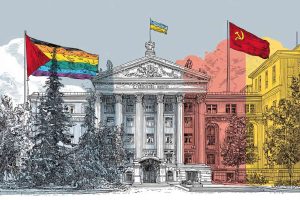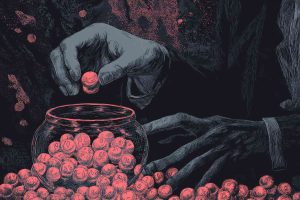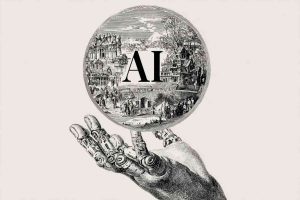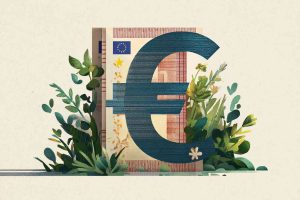Council of State: Power Without a Mandate?
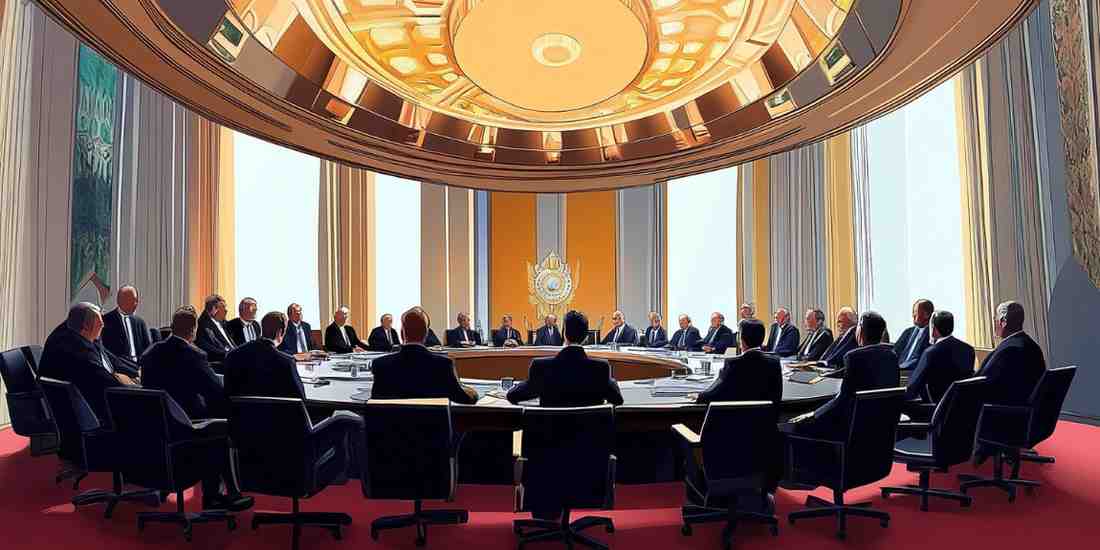
An invisible power at the heart of the state
The Council of State is one of the most powerful institutions in the Netherlands, yet one of the least understood. While many citizens still associate the House of Representatives with democracy and debate, the Council of State operates largely outside public awareness. Nevertheless, this body has enormous influence over legislation, policy, and administrative decisions. It acts as the highest administrative court, as an advisor to the government, and as a guardian of the “constitutional balance.”
However, a closer look reveals that the Council of State is not a democratically elected body, and that its members often come from the same narrow political and bureaucratic circles. It represents not the people, but the establishment (De macht van de Raad van State, NRC).
Historical origins: an institution of the monarch
The roots of the Council of State go back to 1531, when Emperor Charles V established a Council of State to advise him on governance and legal matters. The institution initially served as an extension of monarchical power. During the Dutch Republic, it remained an instrument of the elite: nobles, lawyers, and regents set the course. After the French period, King Willem I reinstated the Council of State, once again as an advisory body to the monarch (De geschiedenis van de Raad van State, Parlement.com).
That heritage never disappeared. The Council has always been closely tied to the monarchy, and to this day the Dutch king is formally its president. Although the king rarely attends meetings, this symbolic connection underscores that the Council is still rooted in a pre-democratic era (Constitutionele monarchie in Nederland, Van den Berg).
Powerful functions without oversight
The Council of State has two core functions: it advises on proposed legislation and serves as the highest administrative court. Both roles are fundamental to the Dutch legal system. Every government bill must first be reviewed by the Council for advice. The Council may reject, criticize, or recommend amendments to such proposals. While ministers are not legally obliged to follow its advice, in practice, it carries enormous weight (Advies en invloed, Wetenschappelijke Raad voor het Regeringsbeleid).
In addition, the Council functions as the supreme administrative court of the Netherlands. Citizens who disagree with government decisions, regarding asylum, the environment, taxation, or spatial planning, ultimately end up before the Council’s Administrative Jurisdiction Division. This body determines, with final authority, whether the government acted within the law. There is no appeal beyond it (De bestuursrechtspraak van de Raad van State, P. Rodrigues).
This means the Council judges the government while also being part of it. That dual role is structurally problematic: the Council advises on policies, and then later assesses those same policies judicially (Macht zonder controle, Elsevier Weekblad).
An institution without democratic legitimacy
Members of the Council of State are not elected but appointed by royal decree. In practice, this means the government decides who joins. These appointments are political, even if that is rarely acknowledged. Former ministers, high-ranking civil servants, party figures, and establishment jurists dominate the Council. The public has no say in these selections. As such, the Council represents bureaucratic continuity rather than popular representation (De gesloten wereld van de Raad van State, De Groene Amsterdammer).
The Council therefore lacks democratic legitimacy. Whereas the House of Representatives must answer directly to voters, the Council does not. Its rulings and opinions impact millions of citizens, yet it can never be held politically accountable. It embodies a technocratic form of power: a small circle of “experts” makes decisions that are presented as neutral but are deeply ideological (Technocratie in Nederland, Clingendael Institute).
The illusion of neutrality
The Council of State presents itself as a neutral, legal-technical institution. In practice, that image does not hold up. Many of its opinions carry an overt political bias. The Council has long defended strict environmental policy, pro-migration interpretations of EU law, and has consistently ruled in favor of the state in cases where citizens or companies challenged government actions (De Raad van State als politieke speler, Montesquieu Instituut).
A notorious example is the stikstof (nitrogen) ruling. In 2019, the Council of State struck down the Programma Aanpak Stikstof (PAS), invalidating thousands of permits for farmers and construction projects. The decision caused economic and social shockwaves. Although the Council claimed to be “merely applying the law, ” its reasoning relied heavily on rigid European directives and stricter interpretations than necessary (Het PAS-arrest uitgelegd, Trouw).
The result was devastating for Dutch farmers and the housing sector, while the Council itself bore no political responsibility.
In asylum cases, the Council has also shown a consistent EU-oriented approach, following the jurisprudence of the European Court of Justice and the European Court of Human Rights almost without criticism, even when such interpretations conflict with national policies or public sentiment (Europeanisering van het Nederlands recht, Hoogers). In doing so, the Council acts as an enforcer of supranational norms rather than of democratically established Dutch law.
The Council as an ideological stronghold
The current composition of the Council of State mirrors the administrative and academic elite in The Hague. Members often come from the Ministry of Justice, the European Commission, or universities steeped in progressive and internationalist ideology. That bias seeps into the Council’s advice and rulings. Its focus is rarely on what benefits Dutch citizens, but rather on what aligns with European consensus, climate objectives, or “rule-of-law” values as defined in Brussels (De bestuurlijke elite, A. Ellian).
As a result, the Council frequently supports policies that conflict with the interests and desires of the Dutch people. On issues ranging from migration to nitrogen policy, housing to energy, the Council consistently favors interpretations that expand the power of the European Union while shrinking the autonomy of national democracy (De EU en de nationale rechtsorde, Besselink).
The problem of the double role
The Council of State combines advisory and judicial functions within a single institution. This leads to a fundamental conflict of interest. When the Council advises on legislation and later rules on its implementation, it effectively reviews its own previous work. There is little incentive for self-criticism (De dubbele rol van de Raad van State, NJB).
The Council thus serves as a buffer protecting the state from excessive legal opposition rather than protecting citizens from state overreach. Instead of being a check on power, it has become part of the power structure itself (De rechtspraak als verlengstuk van de staat, Elsevier Weekblad).
An unelected fourth power
In practice, the Council of State, together with institutions such as the Supreme Court, the Council for the Judiciary, and the European Commission, forms a “fourth power”: a bureaucratic elite not controlled by elections yet deeply shaping policy and law (De vierde macht in Nederland, Bovend’Eert). The notion that the Netherlands is a democratic constitutional state becomes hollow when unelected institutions wield greater influence than the people’s representatives.
This problem is compounded by the revolving door between politics, the civil service, and the judiciary. Former politicians often find their way into the Council of State, while its senior officials later become ministers or secretaries of state. The system perpetuates itself, maintaining a closed administrative bubble devoid of true counterbalance (De gesloten bestuurscultuur, NRC).
Consequences for citizens
For ordinary citizens, appealing to the Council of State for justice often feels futile. The likelihood of winning a case against the government is low. The Council typically interprets the law in a way that favors the state (Rechterlijke terughoudendheid in bestuursrecht, Van Ommeren). Moreover, its language and procedures are so technical and inaccessible that most citizens cannot even follow them. Law becomes an instrument of distance rather than fairness.
In the nitrogen case, farmers saw their permits revoked under European directives they never voted on. In asylum cases, the Council blocked restrictive immigration policies proposed by the government. In both instances, the Council justified its actions as obedience to “the law, ” though that law was not democratically established within the Netherlands (Democratie en rechtspraak, Van Middelaar). This reinforces the sense that the Dutch legal order no longer serves the people but rather international rules and a self-protecting bureaucratic class.
The need for reform
A truly democratic constitutional order cannot tolerate institutions that wield power without accountability. The Council of State must be reformed: its dual role as advisor and judge should be separated, and its appointments made transparent and representative. Some of its functions should fall under direct parliamentary supervision. The highest administrative judiciary could instead be housed in an independent court appointed by Parliament (Herziening van de bestuursrechtspraak, Universiteit Leiden).
The king’s position as formal president is an anachronism, a symbolic reminder of how far this institution has drifted from democratic oversight. The Council of State belongs not in a modern parliamentary democracy but in a monarchical system where power rests on tradition and connections (De monarchie als symbool van macht, Montesquieu Instituut).
Power without accountability
The Council of State is, in essence, a shadow government shaping policy and legislation behind the scenes. It combines judicial, administrative, and political power without being answerable to the electorate. At a time when citizens feel increasingly powerless in the face of the state, this is a dangerous development.
As long as the Council of State can continue to operate as an unelected authority, Dutch democracy will remain incomplete. The Council’s power is immense, its legitimacy minimal. What remains is a governance culture in which the people do not rule, but are ruled.





